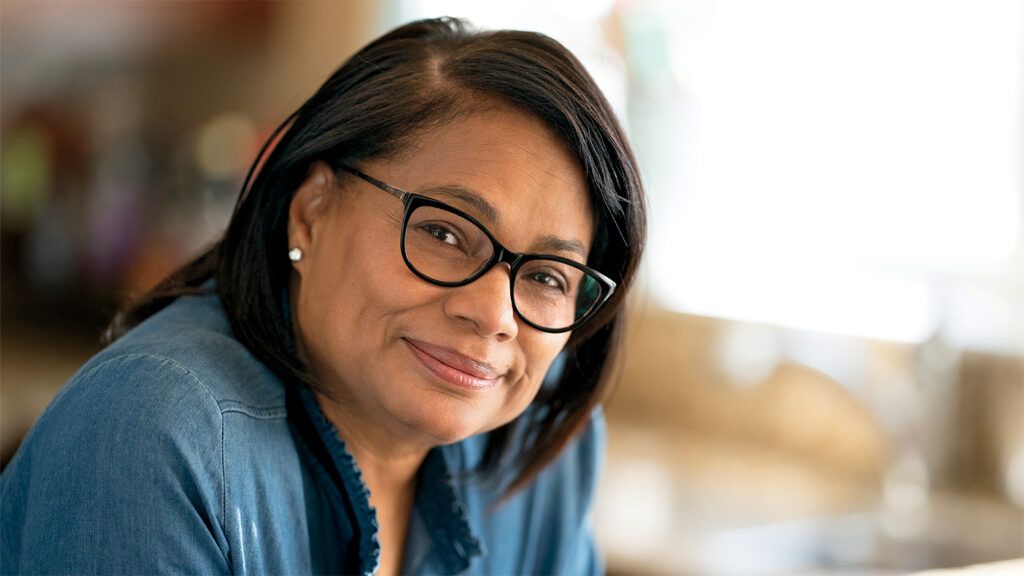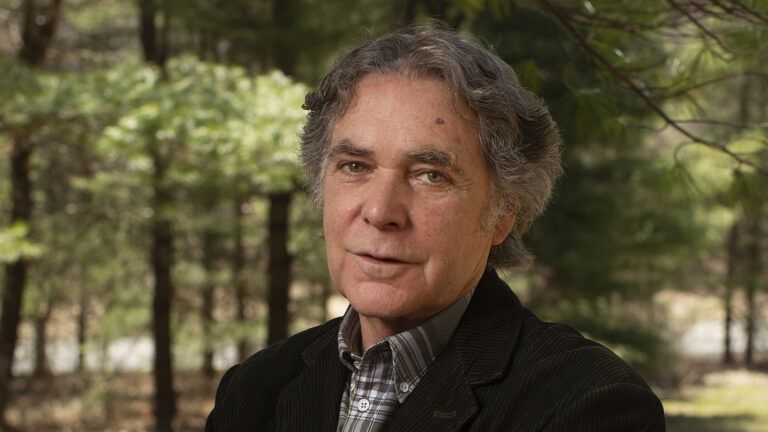The two chaplains who’d come to my hospital room meant well. There was no mistaking the concern in their eyes.
“God loves you,” one of the women said. “He’s always there for you.”
I sat up in my bed, grimacing. It felt as if the left side of my face were exploding. For nearly eight years, I’d suffered from a rare neurological disorder. Medications I took three times a day helped mask the pain. There was little hope of a cure. But that wasn’t the reason for this latest hospitalization. Six screws and a titanium plate had been placed in my neck to stabilize a deteriorating spine—unrelated to my neurological disorder. I was so sick of hurting and feeling miserable. And now these two women of the cloth were reminding me about God’s goodness.
“Is there anything we can do for you?” the other chaplain asked.
“Tell me why God let this happen to me,” I said, my voice rising. “What does he want from me? Why won’t he help?”
The chaplains exchanged glances. For what seemed like the longest time, they said nothing. Finally one of them said, “Why don’t you ask God yourself?”
It was a sunny morning in August 2007 when, out of the blue, the left side of my face began burning, the beginning of a torturous pain condition called trigeminal neuralgia, or TN. It’s caused by the trigeminal nerve, one of 12 cranial nerves, misfiring, sending painful sensations to the head and face. “Some people say it’s the worst pain a human can experience,” my neurologist said.
With zero warning, I’d feel something akin to a bolt of lightning hitting me in the eye or ear or tongue. Other times it felt as if a bag of bricks were slamming against the side of my head. My lower lip was always on fire. If I was standing, my knees sometimes buckled because of the pain. Varied and unpredictable, it came in bursts every few minutes but sometimes not for hours.
I was in my fifties. I had a successful career as a newspaper and magazine journalist but had to give it up. My husband, Michael, commuted an hour each way to his job in finance and didn’t return home until late. Our two sons were away at college. I was alone. I couldn’t even drive.
I prayed and prayed. Angry, insistent prayers for God to heal me. I wasn’t looking for a conversation. Wasn’t listening for that still, small voice. I wanted action. Couldn’t God at least help me tolerate my condition? I spent most days on the couch, curled in a ball, the television on, more to fill the silence than to watch. I didn’t have the focus for that.
“God is going to heal you,” Michael said to me. His men’s group at church were praying for me at every meeting. Friends called and sent cards. Stay positive! Don’t lose hope! Everyone admired my faith, not knowing how much it was waning.
It took months before my neurologist found a mix of medications that lessened the pain, which was still awful. Would I ever get my life back?
Miss Dee, an older member of our church, appointed herself my spiritual adviser. She called every morning with Scriptures for me to repeat at least three times a day. She called again every evening and asked, “Did you pray the Scriptures today, Leah? How many times?”
Miss Dee sent me cards and letters. She sent me prayer journals and CDs with calming music and Scriptures narrated by soothing voices. I played the CDs but left the journals untouched.
“Good news,” Miss Dee said one day. “I found a gifted faith healer. He can come to your house tonight. He’ll pray over you, and I believe you will be healed! He just asks for a small donation.”
I called Michael. He’d want to know about this. “We don’t know who this person is,” he said. “Miss Dee is a nice church lady, but she’s not a spiritual leader. Tell her thanks but no thanks.”
I had to agree. If the prayers of his men’s group and those of my family and friends couldn’t get God to heal me, I couldn’t see how paying a stranger to try to get a prayer through would do any good. After I declined the offer, Miss Dee stopped calling.
At our church’s regular prayer meetings, I walked to the front to have the elders lay hands on me. I felt comforted in the moment, but the pain soon returned, like clouds blotting out the sun.
Two years after my diagnosis, my neurologist referred me to a renowned neurosurgeon. He recommended a cranial rhizotomy, a procedure during which he would thread an electrode through my face, then through a tiny hole in my skull and destroy the nerve fibers causing the pain. The operation would take less than two hours. The procedure was considered minimally invasive, if you can believe that.
“After the operation, your TN pain will be gone,” the neurosurgeon had said.
All went well until I woke up in the recovery room. “Face on fire! Face on fire!” I screamed, fanning my face with my hands. My face felt as if it were cracking into a million pieces. A nurse rushed over and gave me a sedative. When I woke again, my pain was worse, beyond excruciating.
I was hooked up to a machine that allowed me to dose myself with the strongest painkiller available. It left me doped up, but I felt relief. The neurosurgeon explained the procedure had been complicated by a structural anomaly in my skull. “It’s possible that over time the trigeminal pain will resolve on its own,” he said. Then he asked, “Can I pray for you?”
It was a question no doctor had ever asked me. I stared at him, then nodded. “God, we come asking for you in your grace and mercy to ease her suffering….”
Then he said, “Mrs. Latimer, I believe you will have the victory the Scriptures promise to those who love God.” Victory? When I couldn’t go more than an hour without my neuropathic painkillers?
A few days later, I was discharged. Over the next weeks, the pain induced by the cranial surgery receded to the level it had been before the procedure. I was no worse off but no better, either. I would go on living with TN for another eight years. Well, I wouldn’t call it living. I was really only existing. Understandably, fewer and fewer friends were checking on me.
Weeks went by without anyone calling to pray with me. My sisters and mother were always encouraging me, taking me on short outings, but I was emotionally exhausted. Tired of having pity parties. Tired of being angry at God. Tired of the whole thing. Why won’t he help me?
With newer meds, the frequency and severity of the pain lessened to an eight out of ten on the pain scale. I still spent most days on the couch in front of the TV, not bothering to get dressed for the day. I wasn’t going anywhere.
Then came the neck surgery and the chaplains who talked of God’s goodness.
Back at home again, fitted with a bulky cervical collar, I returned to the couch. Switched on the television and began going through the channels. Talking heads yammering on about politics. A game show. Some houseflippers thing. A religious channel.
There on TV was a woman in a wheelchair. “In addition to her quadriplegia,” the interviewer said, “she suffers from chronic pain.” I tossed a slipper at the screen. “How much does one person have to take, Lord?” I said. I was about to switch the channel, but something stopped me. I kept listening. The woman had been in a wheelchair for 40 years. And she had lived an amazingly full life! She had married and traveled the world as an inspirational speaker. “You have to go on living,” she said. “Trust that God’s grace is sufficient.”
Why don’t you ask God yourself?
The chaplains’ words came back to me. And for the first time, I realized that God had been answering my pleas. He’d surrounded me with caring friends and church members and a large, loving extended family. A husband who provided for me, who was patient and supportive. Sons who made me happy and proud. At every turn, God had showered me with his grace by putting people in place to help me physically and spiritually. Even a neurosurgeon who’d prayed for me! Miss Dee, bless her. And the chaplains.
The next morning, instead of flopping onto the couch in my pajamas, I got dressed. I took out my audio Bible and listened to the verses about the gift of God’s grace. I thanked God and asked him to help me focus less on myself and more on serving others. In the weeks that followed, I signed up for women’s discipleship training at my church and joined a group that prays for the sick.
It all made sense. God had used my long struggle with TN pain to let me deeply experience his grace. He wanted me to help others by sharing my story. I finally had the answers to all of the questions I’d asked the hospital chaplains.
In the summer of 2016, I slowly began reducing my medications to see if the trigeminal neuralgia had resolved on its own. The pain was gone! Just as my neurosurgeon had said was possible, years before. I walked around lip-synching gospel singer Kirk Franklin: “I know that I can make it. I know that I can stand. No matter what comes my way, Jesus, my life is in your hands.”
If my TN returns—and it could—I know how I’ll handle it. I’ll trust that God’s grace, doled out in caring and comforting ways, will be enough to get me through it.
For more inspiring stories, subscribe to Guideposts magazine.





